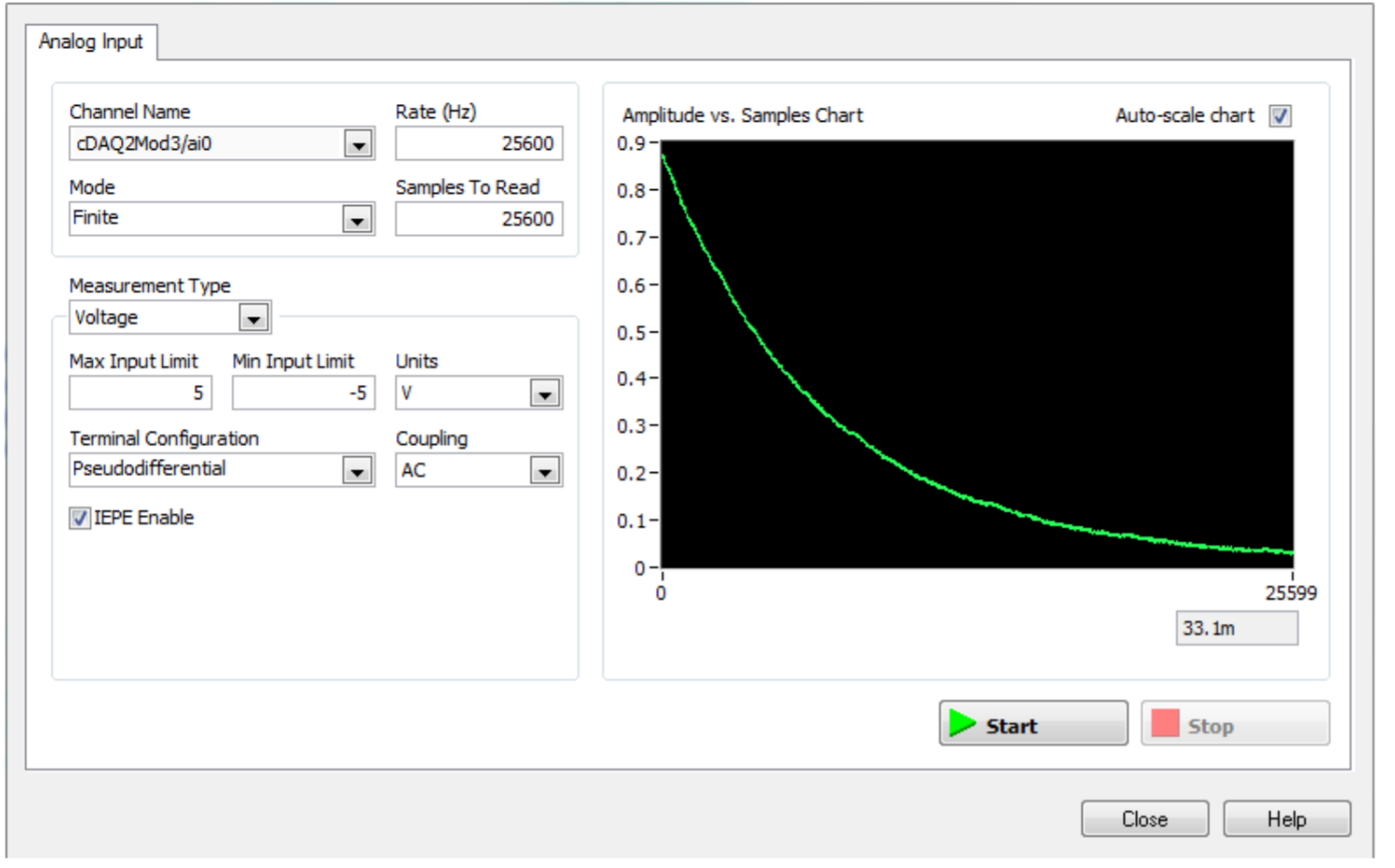Solution
Yes, this decaying signal is expected behavior for DSA devices when Integrated Electronics Piezo Electric (IEPE) excitation is first enabled. The default power-on state for the IEPE excitation on most NI DSA devices is off. Therefore it will be turned on the first time you run a task after powering on the device. IEPE excitation is a constant current excitation, and it will create a DC offset due to the voltage drop across your sensor (8-10 V), typically referred to as the sensor's bias voltage. In order to remove the DC offset caused by the IEPE excitation, most DSA cards will enable their AC coupling filter when IEPE excitation is enabled. The exponential decay of this filter is what you are measuring the first time IEPE excitation is turned on.
 Note:
Note: In some cases the settle time of your sensor may exceed the settling time of the DSA device's AC coupling filter. In that case the sensor's settling time will be the limiting factor.
We can enable IEPE excitation either in an NI-DAQmx task or directly in a MAX test panel. See the Related Links section below for more information on this process.
After enabling the excitation current, we can wait a safe amount of time for the sensor and the AC coupling filter to reach steady-state before acquiring data. There is an executable along with the development VIs available on a community example, NI Community: Initialize IEPE Excitation on All DSA Devices.This can be ran at Windows start-up to enable the IEPE excitation automatically so the sensor will be in a steady-state when data acquisition begins. This example is written to turn on the first, non-zero IEPE current excitation for every available device. If you configure it to run as a Windows start-up application, it will execute as soon as your system is powered on.